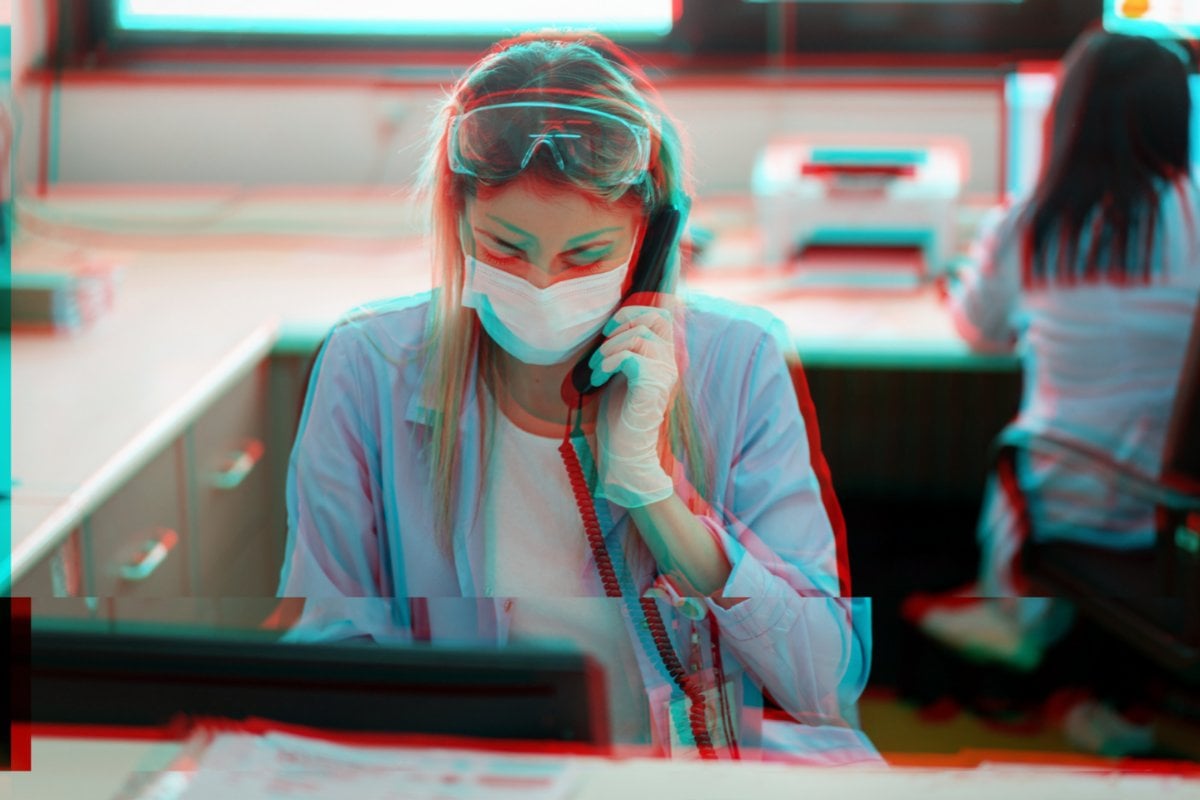
In the dark lockdown months of 2020, I’m sure I wasn’t the only one who choked up at scenes of city-wide applause for the doctors and nurses working around the clock to combat an illness they had to learn about on their feet.
It was a well-deserved, touching gesture – a reminder of how reliant we all are on each other’s individual skills, talents and vocations.
But as praise mounted for medical teams everywhere, I couldn’t help but think of my mum.
Watch: A thank you to masks. Post continues below.
Lockdown had not meant pyjama days and too many snacks for her; she was at work all day, every day, behind the reception desk of her local GP clinic.
With nothing but a garden-variety disposable mask between her and the next possible COVID case to unknowingly walk in the door, Mum’s workload went through the roof as she suddenly became the head of a triage operation of huge importance.
The usually straightforward procedure of taking phone bookings became a full-scale operation to ascertain whether people were a serious threat to the doctors, staff and patients of the clinic – with frightened (often elderly) patients reluctant to take COVID tests in strange locations, instead wanting to come see their family GP, because it was “just a sniffle”.




Top Comments